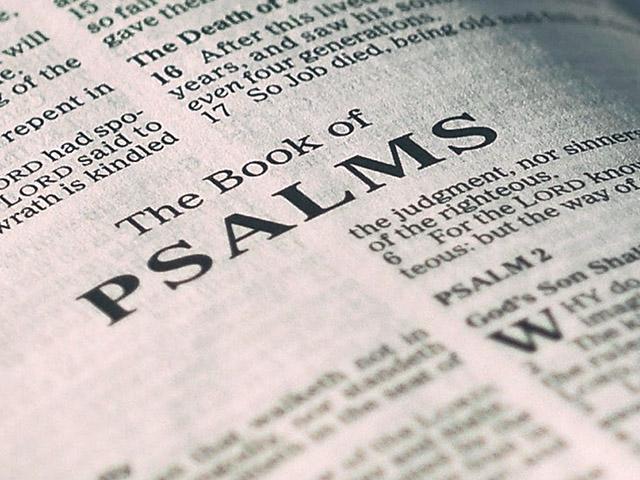Years ago, I began to study through the Old Testament, starting from Genesis. I started from Genesis in the mornings, and later on, I decided to start studying the Minor Prophets in the evenings. After many months, I was done with Job, and it was time to study the Psalms. However, I decided to skip the Psalms. The Psalter was never my favorite book of the bible. Part of it is because people tend to use the Psalms as a tool to fight against their enemies. Did Jesus not command us to love our enemies, pray for them, and do good to them? (Mathew 6:43-46). Many people use the Psalter for all kinds of funny stuff. People pray passages in the Psalms into the water to make “holy water.” Some will read passages from the Psalter before sleeping as a form of protection.
Because of these factors, I was not a particular lover of the Psalms. The size of the book also discouraged me back then. Therefore, I skipped the Psalms and Proverbs and continued my study from Ecclesiastes. The idea was to come back to these two books later on. However, the “later on” would later turn to a few years. After studying many books in the New Testament, I decided it was time to go back to the Old Testament. The Psalter was waiting for me again.
This time I took the courage and decided to plunge in. After many months of studying the Psalter verse by verse, I believe it is one of the best books we have in the Scriptures.
What I Love About the Psalms
I would like to identify some of the things about the Psalms that made me fall in love with the book after avoiding it for years.
The Attributes of God
I do not think there is any book in the bible that gives us a comprehensive understanding of the attributes of God like the Psalter. In the Psalms, we see the lovingkindness of God (hesed), and his faithfulness (emet). In different passages, we see God as just and righteous, sovereign, and great. Everywhere we look in the Psalter; we come face to face with the reality of who God is. The Psalter is a book that weans us from our idolatry – our desire and constant attempt to create God in our image. It confronts us with the only God that exists- the God of the Bible and all of his attributes and perfections.

God will judge
The Psalter opens with a wisdom psalm that distinguishes the wicked and the righteous and contrasts their fate. Asaph in Psalms 73 confronts us with the reality of the prosperity of the wicked and the suffering of the righteous. This reality disturbed him, but when he went into the sanctuary of the Lord, he understood the end of the wicked. Book Three of the Psalter (Psalms 73-89) repeatedly emphasized that God will judge the wicked, and he will reward the righteous. We live in a moral universe under God’s authority, and he distinguishes between good and evil, God is not morally indifferent, and he will judge.

Theology-Centered Praises
The Psalter is a rebuke to much of the praises we offer to God in this day and age. The praises to God that we find in the Psalter are substantial and theological. They come from deep reflection on who God is and what he has done. Every time the Psalms call us to praise the Lord, they remind us of the reasons we are praising him. It’s either we are glorifying him for the greatness of his power in the creation and preservation of all things, or we are praising him for his redemptive works on behalf of his people, or we are praising him for his love and faithfulness or his execution of justice on the wicked. (Psalms 5:17, 144-150) The praise of God is never mere self-centered emotional outbursts. The praise of God is primarily theological. We are singing praises to a God we know. Does it mean the worship of God is devoid of emotion? Nah. It means the foundation of our praise and worship is an accurate knowledge of who God is and what he has done. I love the Psalter because they remind us how to worship God.

Learning to Pray
Prayer is one area of my life I need to improve upon. The Psalter has helped in manifold ways. The Psalter taught me to pray like Moses- the character of God as the foundation and the glory of God as the motivation. The prayers we find in the Psalms flow out of a deep understanding of who God is and a desire to bring glory to his name. Psalms 74, 83, 102, 116, 143 are some examples of these types of prayers.
In the Psalms, we also find the psalmists showing us how to pray with confidence. Many times, the psalmists end their prayers with an expression of confidence. Even before the prayers are answered, they are already bursting forth in praise and/or affirmations as if they already have what they are asking for. It takes a kind of faith and trust to pray that way. Psalms 28:6, 26:12, 20:6, 14:7, 106:48 etc.

Redemption themes
The focus on redemption in the Psalms is amazing. Many times, the Psalms look back to the redemption of Israel from Egypt (Psalms 136, for example). Other times, it looks forward (and backward) to the redemption from the Babylonian captivity (Psalms 137, the songs of ascents- Psalms 120-134). The Psalter also contains many messianic psalms that look forward to Christ and his redemption. The theme of redemption (whether looking backward, forward or in an eschatological sense) fill the Psalms. It reminds us of the redemptive works of Christ and the fact that apart from his gracious intervention, we are all doomed.

Fighting with God on our side
The experience of David in the Psalms reminds us that we are in a battle. David had to battle with his enemies (who are also enemies of God). The enemies of David are so because they are enemies of righteousness. They loved sin and unrighteousness and hated God’s anointed. David loved the law of God; he pursued righteousness and justice.
Like David, we are also in a battle against unrighteousness. Though our weapons are not carnal, the war is no less real. God has enemies, and we are God’s friends. The enemies of God hate us because we are God’s friends. We are in a battle against sin and unrighteousness because we are on the side of truth and righteousness. The battle is real, and we must fight.
David depended on God for victory repeatedly. He pleaded with God when his enemies persecute and slander him. He knew that his help in the battle against unrighteousness is God and him alone. His battle is our battle. We oppose unrighteousness. We stand against everything contrary to God’s ordering of his world. In that battle, we have enemies who are ravaging wolves and will try to destroy us. To God, we must cling. To him, our cries for justice and vindication must ascend.
Anyone who has a slight understanding of what God calls us to in this world will know that the prayers of David are not to be shrugged over. Yes, we must pray them in light of Mathew 6, the realities of the gospel, and the new covenant. However, if we don’t empathize or sympathize with David, seeing him as our brother in arms, we are not reading our bibles correctly.
Some Helpful Resources
These are the commentaries I used while studying through the Psalter:
- The Book of Psalms by Nancy L. deClaisse-Walford, Rolf A. Jacobson, Beth LaNeel Tanner, The New International Commentary on the Old Testament.
- Psalms 1-72, Donald Williams, The Preacher’s Commentary
- Psalms 73-150, Donald Williams, The Preacher’s Commentary
- Psalms 1-72, Derek Kidner, Classic Commentaries
- Psalms, Albert Barnes Commentary
A Challenge
It is impossible to state all the reasons I love the Psalter (and you should). If I attempt that, this article will become rather long and extended. Nevertheless, I hope these few snapshots get you to consider the amazing treasures in the Psalter.
If like me, you have never fancied the Psalter, this is the time to do so. The Psalms are so rich in theology and Christian living. Make sure it is one of the books you intend to read (and probably study) one of these days.



